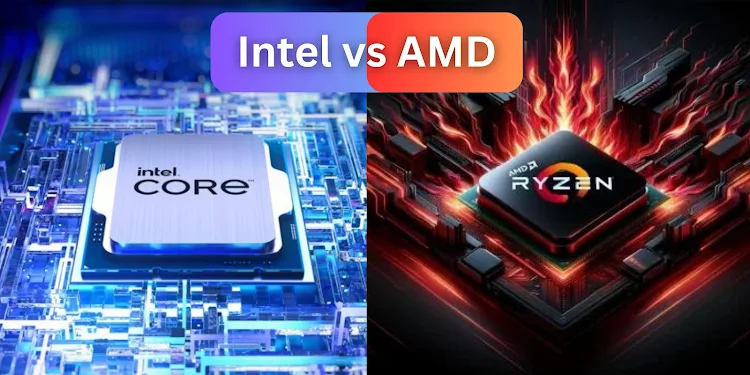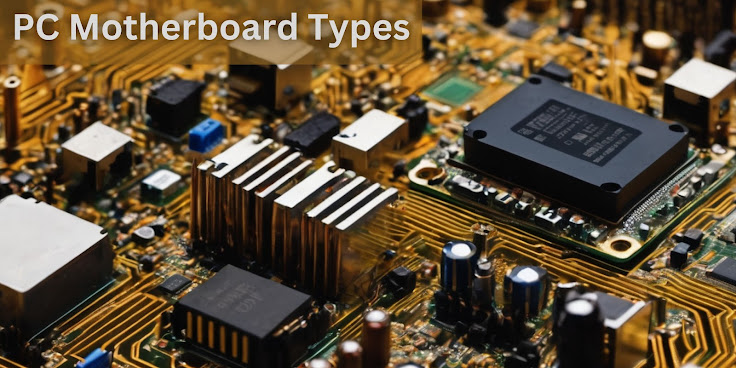The Great Gaming Debate : Intel vs AMD, Simplified!
For PC gamers, choosing the right processor (CPU) is arguably the most crucial decision, impacting performance, smoothness, and overall gaming experience. The two main players in the CPU arena, Intel and AMD, constantly push the boundaries, offering compelling options for various budgets and needs. However, a long-standing debate revolves around whether gaming on Intel processors is definitively better than AMD.
This article delves into this complex topic : Intel vs AMD, exploring the strengths and weaknesses of both brands, analyzing their impact on gaming performance, and ultimately highlighting the factors beyond brand loyalty that truly determine the best CPU for your gaming needs.
Understanding CPU Architecture and Performance Metrics
Before diving into the specific details, it's essential to establish a basic understanding of key CPU concepts -
Cores and Threads : Cores are the processing units within a CPU, handling individual tasks. Threads, on the other hand, are virtual cores that allow a single core to handle multiple tasks simultaneously, improving efficiency.
Clock Speed : Measured in GHz, clock speed indicates the number of cycles a CPU can complete per second. Higher clock speeds generally translate to faster processing.
Instructions per Clock (IPC) : This metric refers to the number of instructions a CPU can execute per clock cycle. A higher IPC translates to more work done per cycle, even at the same clock speed.
Cache : A temporary storage space on the CPU that holds frequently accessed data. Larger caches improve performance by reducing the need to fetch data from slower main memory.
Exploring Intel's Gaming Prowess
Intel processors have long been synonymous with high-performance computing, particularly in the gaming realm. Their strengths lie in several key areas -
Higher Single-Core Performance : Traditionally, Intel CPUs have boasted superior single-core performance, which significantly impacts games that rely heavily on single-threaded tasks like menu navigation, cutscenes, and certain game mechanics.
Higher Clock Speeds : Intel CPUs often reach higher clock speeds, potentially leading to smoother gameplay in some games, especially older titles or those that are less optimized for multi-threaded performance.
Strong Gaming Legacy and Brand Recognition : Intel has a long and successful history in the gaming market, fostering a strong reputation and trust among gamers.
Examining AMD's Rise in Gaming
In recent years, AMD has made significant strides in the CPU market, offering increasingly competitive options for gamers -
Higher Core Counts and Better Multi-Threading : AMD processors often pack more cores and threads, potentially translating to better performance in multi-threaded games and applications that utilize multiple cores effectively.
Competitive Pricing : AMD processors are generally priced more competitively than their Intel counterparts, offering attractive options for budget-conscious gamers seeking good value for their money.
Improved Single-Core Performance : While historically lagging behind, AMD has narrowed the gap in single-core performance, making their newer processors more competitive in single-threaded workloads.
The Evolving Gaming Landscape and Benchmarking
The gaming landscape is constantly evolving, with developers adopting increasingly sophisticated multi-threaded engines. Benchmarking tools play a crucial role in assessing real-world performance differences across different processors. However, it's crucial to -
Consider a range of benchmarks : Focus on game-specific benchmarks that reflect your preferred titles or genres, as results can vary significantly between games.
Evaluate overall system balance : Processor performance is just one piece of the puzzle. A balanced system with adequate RAM, a compatible graphics card, and a fast storage solution will significantly impact your gaming experience.
Beyond Brand Loyalty - Choosing the Right CPU for You
Instead of solely focusing on brand loyalty, consider these factors when choosing a CPU for gaming -
Your Gaming Needs : Identify the types of games you play and their specific hardware requirements. Focus on the features and performance that matter most for your preferred games.
Budget : Determine your budget and compare processor options within your price range.
Future-Proofing : Consider the longevity of the CPU and its ability to handle future games and applications.
Overall System Balance : Ensure the chosen CPU complements other components in your system, such as RAM and graphics card, for optimal performance.
Going Beyond the Benchmarks - Exploring Specific Use Cases
While benchmarks offer valuable insights, real-world gaming performance can be impacted by various factors beyond raw CPU power. Here's a deep dive into specific gamer profiles and how each brand might address their needs.
The Competitive Gamer -
- Prioritizes high frame rates and responsiveness in fast-paced games like esports titles.
- Benefits from Intel's historically superior single-core performance for tasks like menu navigation and quick in-game reactions.
- Can benefit from AMD's strong performance in certain esports titles that leverage multi-threading effectively.
The Streamer/Content Creator -
- Requires a CPU that handles demanding tasks like streaming, recording, and gaming simultaneously.
- Can benefit from AMD's higher core/thread count, enabling efficient multitasking while ensuring smooth gameplay.
- Certain Intel processors with high clock speeds might offer advantages in specific encoding tasks.
The Budget-Conscious Gamer -
- Prioritizes value for money and seeks performance within their budget.
- AMD often offers competitive pricing on processors with decent core counts and performance.
- Intel's entry-level offerings might still offer adequate performance for less demanding games.
The Future-Proof Gamer -
- Wants a CPU that can handle the demands of future games without needing an upgrade too soon.
- Both Intel and AMD offer CPUs with features like PCIe Gen 5 support and DDR5 compatibility, future-proofing aspects.
- Consider the potential upgrade paths and chipset support when choosing a CPU platform.
The Casual Gamer -
- Plays occasionally and prioritizes a balance between performance and affordability.
- Both brands offer a range of processors that can handle popular games at moderate settings.
- Focusing on overall system balance with adequate RAM and a graphics card is crucial for this group.
Remember
- These are just examples, and the best choice for you depends on your specific needs and priorities.
- Consult with tech-savvy friends, reputable online reviews, and explore community forums to gain diverse perspectives and insights
- Don't be afraid to experiment and try different brands to find the one that delivers the best experience for your unique needs.
Conclusion
The debate between Intel and AMD for gaming CPUs is nuanced and depends heavily on individual needs and budget constraints. While Intel has historically held an edge in single-core performance, AMD has made impressive strides in recent years, offering strong multi-threading and competitive pricing. Instead of blindly following brand loyalty, prioritize your gaming needs, budget, and future-proofing goals when choosing your next CPU. By considering a range of factors and relying on reliable benchmarks, you can make an informed decision that ensures the best possible gaming experience for you.




Comments
Post a Comment